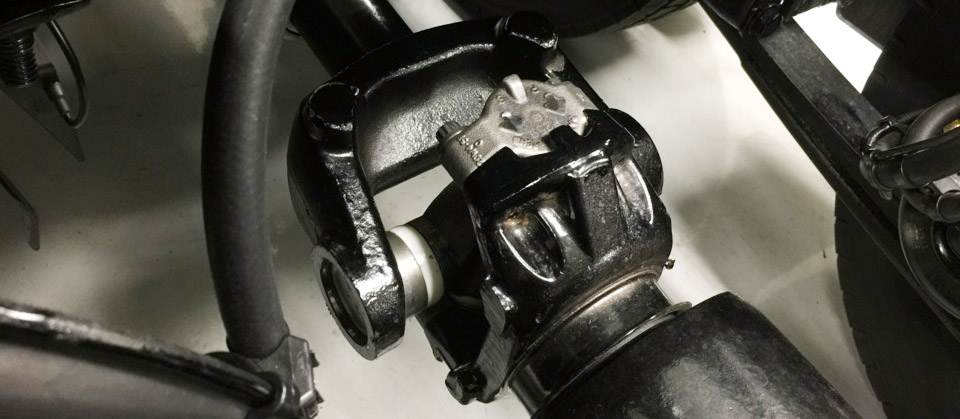
In rear-wheel drive cars, the rear wheels are rotated by a driveshaft, which does the job of transferring the engine’s power from the vehicle’s transmission to the rear wheels. A vehicle’s driveshaft is held in place by u-joints, which are built with bearings that reduce friction and keep the driveshaft moving smoothly. If u-joints are not properly lubricated, then these bearings will wear out over time, and the driveshaft will begin to vibrate, resulting in a less smooth ride. Your car will feel rough even on the smooth streets of Pasadena. You will start to feel vibration in your seat or throughout your car, as well as a clunk when you shift your car into gear.
U-joints are responsible for holding the driveshaft in place. This means that they have to be very strong in order to withstand the extreme forces which are placed upon them. When your car’s u-joints break, the driveshaft has nothing holding it in place, and will vibrate heavily. This will not only give you a rough ride, but result in your vehicle’s driveshaft wearing out more quickly. Therefore, if you find that you have worn u-joints, you should get them replaced as soon as possible in order to avoid needing a much more costly driveshaft replacement sooner than you should have to.
Some common symptoms of worn or broken u-joints are vibrations felt in the seat or throughout the car, abnormal noises from the chassis, especially when shifting, and red or pink transmission fluid leaking, with visible drops under the car after sitting for a while.
If you find out that you have a broken u-joint, even if the rest look fine, it is best to replace them all at the same time. If one is worn out, in all likelihood, the other ones are as well – it just may not be visibly apparent yet. Cars that are raised or lowered from stock ride height will also be more likely to wear out u-joints faster.
If you notice that you are having problems with your u-joints, feel free to come in to your Certified Auto Repair Specialist of Pasadena today, or give us a call at (626) 793-2220.

